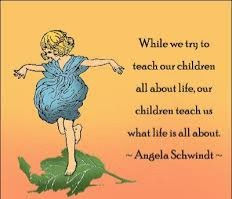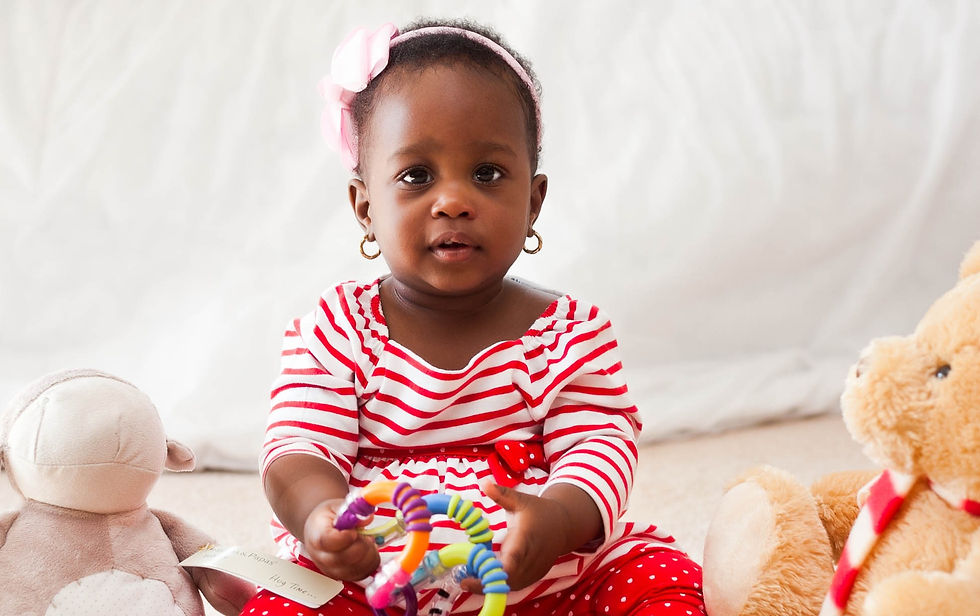When 2 becomes 3...finally
- Sashni

- Feb 28, 2020
- 5 min read
Guest Bloggers: Bukky & Kunle

Oh the joy! To say we were ecstatic to welcome our first child is an understatement. Like every family, we have had our fair share of challenges.
We struggled to conceive naturally and after 6 long years and 1 unsuccessful IVF, our miracle baby girl was born. The waiting game was not easy especially when the doctors could not find a problem. Our faith in God was the key; we learnt to trust irrespective. We made every effort to make the most of our season of waiting as we knew the dynamics would change once we had children. We planned date nights, travelling without prior planning etc. We also talked through other options and had supportive friends and family so we didn’t have to walk alone.
The early years

As excited as we were, the first year was tricky. We changed jobs at the time of Tobi’s birth which also meant relocating. Mum and bub came directly from hospital to a new location! We had no friends or family close by and depended totally on each other. Our faith in God kept us strong.
We made decisions together. For example, making up our mind to introduce solid food at 6months. We had it easy as Tobi always enjoyed tasting our food. With weaning, she didn’t accept breast milk for a few days and we took that as our cue to stop.
Tobi started attending daycare at 14 months. Juggling home, work, daycare/school is tough. Accepting that this is our life now and tailoring our lives accordingly has helped us enjoy each stage of parenthood. In the first few years, we didn’t go to the cinema as we preferred not to leave her with a babysitter. Instead we arranged our movies at home and had a fun time. Like other parents, we have grown to love Disney animations and almost know all of the Peppa Pig cartoons by heart!
We share more in our book 'A beginner's guide to early parenting'.
Discipline

We grew up in a part of the world where parenting is strict and allows for very good use of smacking. Our child is much more sensitive, and we have worked hard to unlearn that approach to parenting. We do not view our parents approach to discipline as wrong; it worked for our parents and for us, but we have chosen a different approach.
It’s important to set limits on what is acceptable behavior; set those standards early. We also introduced discipline promptly as we don’t believe in the terrible two’s. We believe if you introduce discipline too late, it will be more difficult as preliminary character has been formed in the child. Early discipline also reduced tantrums. The issue of discipline did not really arise until about the age of 4. If she is naughty, she will need to go to her room to calm down. We have had a few instances where she has had to face the wall but mostly, she is spoken to. Tobi is sensitive and does not like to be talked at, so she gets the message.
You’ll soon realise a pattern when your child misbehaves. Typically we found that Tobi misbehaved when friends visited. Being the only child she wants them to stay for longer to play and would cry if they were leaving or to share her toys. She would be told firmly what is expected. She would be reminded that if she repeats this behaviour, we will not have the kids over in the future. Usually, we will call her and have a family hug about an hour later just to make up and to ensure she remembers that she is loved. I think this is the key, discipline within the context of family love.
During discipline we never disagree when the child is present, this is key. Where we disagree, we simply note our displeasure and the reason why. Generally, we find that we are able to manage these disagreements to a minimum. What’s worked for us is to allow the parent who is directly involved to mete out the discipline without interference from the other.
Being the only child, we have taken steps to ensure that she is not spoilt. We insist on her being polite at all times and using her manners. At the appropriate age, she learnt to clear her plate from the table, say her prayers, tidy her bed and her toys.
When work takes you to different parts of the world

We have worked in the UK, Korea, Nigeria and are currently in Qatar.
Tobi was 2 years old when we went to Korea, 5 when we relocated to Nigeria and 6 when we went to Qatar. In Korea, we worked for an international organisation who assisted us with some structure. If only one parent is travelling, our advice is to decide if both of you need to work or if someone can stay at home. Since we travel as a family we agreed on finding a home not too far from school and work to minimize travel. In Korea, for example, we had friends who lived an hour away from school and this impacted the quality of family life. We applied the same rule in Qatar.
To keep our family unit stable within the different environments we embed ourselves with our faith community. It’s important for us to be part of a community or something bigger than us.
The key challenge with Tobi was leaving her friends behind every time we moved. Tobi coped well and we attribute it to giving her adequate notice to say her goodbyes. With the technology available today we skype, facetime and whatsapp with friends overseas. We take numerous photos to keep the memories alive. Luckily, she loves travelling and her education is better because she has travelled a lot. We consider the UK home and have learnt that there is a need for a firm home base so as to anchor ourselves to a place.
Final nuggets of wisdom

We have learnt to collaborate based on our strengths but to also do things that are outside of our comfort zones. This keeps Tobi motivated. For example, mum is an indoor person while dad loves the outdoors. So dad has taken on bike rides and outdoor skating while mum does piano lessons and baking. Some we enjoy, others we take on as our responsibility.
In hindsight, we should have introduced more outdoor activities at an early age. Tobi is a very careful child, not a bad thing, but our fear is she could be risk averse if she is not allowed to learn on her own by feeling her environment more.
When it came to learning our dialect, it was important for dad but not so much for mum. We’ve found that it’s essential for both parents to agree. Once agreed, then the local language should be used to communicate to the child in the home environment as the child will always pick the relevant international language at school. We introduced the relevant books at age 6 and she is now picking it up albeit at a slow pace.
Work together. What’s helped is that we are best friends as a couple. Love one another, your child can sense your love and will accept your discipline within the context of that family love.

Finally, there’s no generic style of parenting; rather, you have to find and use the method that works for you and your child/ren.
Please do share this post - there's certainly one person in your sphere that may be encouraged :)
Your fellow Rookie Parents,
Bukky & Kunle Akintayo

Bukky & Kunle are Nigerian-born Britons and have a 7 year old daughter, Tobi. Their home is in Hertfordshire, UK.
They work globally, travelling together wherever work takes them.
They also run a charity Culbeat Foundation focusing on Youth, Education, Healthcare and the less privileged.

.jpg)




Comments